- Home
- J. G. Ballard
Empire of the Sun Page 32
Empire of the Sun Read online
Page 32
‘An enormous period of time had elapsed between the publication of Empire of the Sun in 1984 and my time in the camp, some forty-odd years. And I think partly this was because I had children of my own. I didn’t want to expose them to the kind of experiences that I had had.’
Yes, exactly. I don’t want to make too much of it. Although I spent nearly three years in the camp in one small room with my parents, and my much younger sister, I was very much a free agent. They were only too glad when I left the room and went out into the camp, on my various errands and adventures, doing this and that, trying to wangle a copy of Popular Mechanics or Reader’s Digest from the American merchant seaman I attached myself to. You see, parents had no authority over their children in the camp. They didn’t have any levers. Being strictly matter of fact, my parents couldn’t feed me, they couldn’t clothe me and they couldn’t keep me warm. They had very little control over me. Family life is a collection of pressures, compromises, promises and treats, affections and displays of love, and I think my parents were too tired most of the time to be all that interested in me. I think that led to the estrangement; though the estrangement wasn’t on the emotional level, it was on a sort of administrative level.
When I came to write Empire of the Sun, I thought I would have to follow my own life and have the parents in the camp too. But it didn’t really give the right impression. People would think that if the parents were in the camp as well, then they would be able to protect Jim and that he wouldn’t be in any danger. And that they’d never be in any danger from the Japanese, or that he would never be in any danger from himself, or from his own growing imagination. I felt that this just wasn’t true and so I decided to make him a sort of war orphan.
Can I ask you what you made of Steven Spielberg’s film of Empire of the Sun?
I liked the film. I think it is a very impressive piece of work. I see it once every couple of years. It was made, oh, getting on for twenty years ago now, in 1987, and it seems to have got richer and more interesting as the years pass. I see it not as the film of my book but as a film in its own right. Seeing a novel that you’ve written filmed is always an enormously peculiar experience because you are conscious of a thousand and one discrepancies. You can’t help thinking: ‘It wasn’t like that in my book.’ There’s no reason why it should be exactly alike, after all, but it was a very impressive film.
In The Kindness of Women you continued Jim’s story. Do you have any plans for any further autobiographical works?
No. I think those two books take care of my life. Who knows, one day I might write an autobiography, but I don’t think so.
You studied medicine and have stated that you believe that the contemporary novelist should be like a scientist. Do you ever regret not qualifying as a doctor?
I was very interested in medicine. The experience of dissecting cadavers for two years was a very important one for me, for all sorts of reasons. I do think that novelists should be like scientists, dissecting the cadaver…I would like to have become a doctor, but the urge to write was too great. I knew from friends of mine who were a year or two ahead of me that once you actually joined a London hospital or became a junior doctor the pressures of work were too great. I’d never have any time to write, and the urge to write was just too strong.
‘One of the things I took from my wartime experiences was that reality was a stage set…Nothing is as secure as we like to think it is.’
Do you think there is a moral purpose to your fiction?
I am not sure about that. I see myself more as a kind of investigator, a scout who is sent on ahead to see if the water is drinkable or not.
As a scout or investigator you’ve been uncannily prescient, famously predicting Reagan’s presidency in The Atrocity Exhibition, and I noticed that one commentator made reference to The Drowned World in the aftermath of the New Orleans disaster. Have you ever worried that you might be too prescient?
An investigator and a sort of early warning system, let’s put it like that. I suppose one of the things I took from my wartime experiences was that reality was a stage set. The reality that you took for granted – the comfortable day-to-day life, school, the home where one lives, the familiar street and all the rest of it, the trips to the swimming pool and the cinema – was just a stage set. They could be dismantled overnight, which they literally were when the Japanese occupied Shanghai and turned our lives upside down. I think that experience left me with a very sceptical eye, which I’ve turned onto something even as settled as English suburbia where I now live. Nothing is as secure as we like to think it is. One doesn’t just have to think of Hurricane Katrina and New Orleans – this applies to everything. A large part of my fiction tries to analyse what is going on around us, and whether we are much different people from the civilized human beings we imagine ourselves to be. I think it’s true of all my fiction. I think that investigative spirit forms all my novels really.
LIFE at a Glance
BORN
Shanghai, China, 1930
EDUCATED
Cathedral School, Shanghai
The Leys School, Cambridge
King’s College, Cambridge
FAMILY
Married Helen Mathews, 1956. One son, two daughters
LIVES
Shepperton, Middlesex
A Writing Life
When do you write?
Morning and early afternoon.
Where do you write?
In my sitting room.
Why do you write?
The great mystery.
Pen or computer?
Pen, then type myself.
Silence or music?
Silence.
How do you start a book?
I usually write a detailed synopsis.
And finish?
With a large full stop.
Do you have any writing rituals or superstitions?
No.
TOP TEN BOOKS
Moby-Dick
Herman Melville
The Loved One
Evelyn Waugh
The Big Sleep
Raymond Chandler
Alice’s Adventures in Wonderland
Lewis Carroll
The Trial
Franz Kafka
The Tempest
William Shakespeare
Catch-22
Joseph Heller
Our Man in Havana
Graham Greene
1984
George Orwell
Brave New World
Aldous Huxley
About the Book
The End of My War
by J.G. Ballard
HAD THE WAR ENDED? For days, in that second week of August 1945, rumours had swept Lunghua camp. Shanghai lay eight miles to the north, beyond the abandoned villages and paddy fields, and I remember staring for hours at the apartment buildings of the French Concession along the horizon. The Swiss and Swedish neutrals who had lived there throughout the war would be tuning their short-wave radios to the latest news of the American bombing raids on Japan and the reported peace negotiations.
But in Lunghua camp we knew nothing. Their work-tasks forgotten, the British internees gathered in groups below the balcony of the Japanese commandant’s offices in F block, watching the edgy guards for the smallest clue. The rest of us stood outside the huts and dormitory buildings, gazing at the strangely silent sky. Every day the Mustangs and B-29s had attacked the nearby Japanese airfield and the Shanghai dockyards, but now they had failed to appear. Our food supplies had broken down weeks ago, and we were kept alive only by the emergency rations of the Swiss Red Cross.
I waited for my father to announce that the war had ended, but he knew as little as I did. He and my mother sat in our little room in G block as Margaret, my seven-year-old sister, played outside with the other children. Two-and-a-half years of imprisonment, sharing their rice conjee and sweet potatoes with me, had desperately drained them. I sensed that they knew something they had decided to keep
from me, fearing that our years of internment might end in some sudden and brutal way.
Then, on August 8, we woke to find that the Japanese guards had disappeared during the night. At last we were sure that the war had ended! People gathered silently at the open gates, peering at the dusty road to Shanghai. A few of the bolder men stepped through the barbed-wire fence, testing the empty air. I joined them, and cautiously walked to a grave-mound two hundred yards away. I looked back at the camp, at the intense, crowded world that for so long had been my home. Freedom and the war’s end seemed fraught with danger, like the silent sky. I ran back to the wire, glad to be within the safety of the camp again.
‘Shanghai in the 1930s was the Paris of the Pacific, one of the gaudiest cities in the world. It was a place of bizarre contrasts, of foetid back alleys and graceful boulevards, art deco apartment blocks and half-timbered Tudor mansions.’
Others had already decided to leave Lunghua for good. Half a dozen British men from E block stepped through the wire and set off across the fields for Shanghai, confidently waving goodbye to the camp. They returned the next day, lying unconscious in the trucks that brought another squad of Japanese soldiers to guard the camp. After carousing in the bars of downtown Shanghai the six Britons had been arrested by the Kempetai, the Japanese Gestapo, and severely beaten.
Enraged by their treatment, a crowd of English and Belgian women gathered below the commandant’s balcony. Standing in their tattered cotton frocks, they screamed abuse at the impassive Japanese soldiers, necklaces of spittle shining on their breasts.
Then at last it was all over. The day after Hirohito’s broadcast, we heard from the Swiss Red Cross that the war had ended. The Japanese armies had agreed to lay down their arms. We were told of the atomic bombs dropped on Hiroshima and Nagasaki, which had vaporized both cities and brought the war to a sudden halt.
‘Is the war over?’ I asked my father. ‘Really, really over?’
‘Yes, it’s really over.’ My father stared at me sombrely. ‘Jamie, you’ll miss Lunghua.’
Much as I might miss Lunghua, I was keen to see Shanghai again and visit our house in Amherst Avenue. Most of the 2000 internees remained in the camp, too tired to make their way on foot to the city, and without money or jobs to support them. Chiang Kai-shek’s Chinese armies were far inland, and the nearest American forces were on the island of Okinawa. Meanwhile the countryside around Lunghua was a zone of danger, roamed by undisciplined Japanese troops, destitute peasants and gangs of leaderless soldiers of the Chinese puppet forces. It would be days before the Allied advance guard arrived and took control.
The B-29s had returned and flew slowly over the camp at little more than five hundred feet, bomb doors open. This time they were dropping food supplies, cartons of C rations filled with unimaginable treasures – tins of Spam and Klim, packs of Lucky Strikes and Chesterfields, and bars of hard, gritty chocolate that flooded my mouth with an overpowering sweetness. The parachutes sailed over the camp, landing in the nearby fields and canals, and parties of internees ran out to seize them from the Chinese peasants, forgetting that they too were Allied civilians. Unsettled by all this, I decided to walk to Shanghai. Three days after Hirohito’s broadcast, and without telling my parents, I made my way to the northern perimeter of the camp, beyond the old shower house, and climbed through the barbed wire.
In front of me was a terrain of derelict canals and deserted villages. To my right the Japanese military airfield lay between the camp and the broad arm of the Whangpoo River. Lunghua pagoda, converted by the Japanese into a flak tower, rose into the humid August air. During the American raids the pagoda had lit up like a Christmas tree, tracers streaming towards the low-flying Mustangs, but now its guns were silent and unmanned.
‘Although protected by chauffeurs and White Russian nannies, I was soon aware of a darker Shanghai, of kidnappings, gangster killings, and political bombings.’
Avoiding the airfield, with its restless Japanese sentries, I climbed the embankment of the Hangchow-Shanghai railway line, and set off between the humming rails. Half an hour later I approached a small wayside station, where a platoon of Japanese soldiers squatted among their rifles and ammunition boxes, waiting for a train that would never come.
When I was twenty yards away I saw that they had taken a prisoner, a young Chinese in black trousers and white shirt. They had tied him to a post with telephone wire cut from the poles beside the tracks, and one of the soldiers was now slowly strangling him. The Chinese rolled his head as the wire tightened, singing to himself in a high voice.
The other soldiers had lost interest in the dying man and watched me walk up to them without comment, curiously eyeing my ragged khaki shorts and shirt. I wanted to tell them that the war was over, but I scarcely believed it myself, and I knew that the war’s end carried little meaning for these Japanese soldiers. Caring nothing for their own lives, they cared nothing for the lives of others.
Leaving the station, I walked away along the railway line. The choking sing-song of the dying Chinese floated on the air as he sang himself towards his death. I have never forgotten that sound, but at the time, regrettably, I accepted this casual murder as no more than one of the minor realities of war.
Two hours later, thirsty and exhausted, I reached the western suburbs of Shanghai. At the end of Amherst Avenue I stopped at the house of my closest friends, the Kendal-Wards, who were interned in another of the camps near Shanghai. Hoping to see them, I walked up the steps to the open front door, and gazed through it at the sky above. The house was a brick shell. Everything had been stripped by the passing Chinese. Joists and floorboards, roof timbers and door-frames, pipes and electric cables had gone, leaving only the ghosts of the games we had played as children.
A few hundred yards away was the Ballard house at 31 Amherst Avenue. The roof and windows were still intact, and when I rang the bell the door was opened by a young Chinese soldier in a puppet army uniform.
‘This is my house,’ I told him. He tried to bar my way with his rifle, but when I pushed past him he gave up, aware that for him too the war was over. I stared at the silent rooms, which seemed strangely grand and formal after the shabby clutter of Lunghua. Everything was in place – the carpets, furniture and bookshelves, the cooker and large refrigerator in the American-style kitchen. The house had been occupied by a general in the puppet army, and the war had ended too abruptly for him to steal its entire contents.
‘In my school classroom there were empty desks, as families left Shanghai for the safety of Hong Kong and Singapore. The steamers leaving the Bund were crowded with Europeans turning their backs on the city.’
I wandered through the airless house, trying to put a hundred memories of my childhood into their right places. But I had forgotten too much, and felt like a stranger visiting myself. I climbed to my room on the top floor and lay on the bed, looking at the empty shelves where I had kept my Chums annuals and American comics, and at the rusty hooks in the ceiling from which I had hung my model planes. Most of my mind was still in Lunghua, but a small part of it had come home.
My parents had arrived in Shanghai in 1929, aboard a P&O liner that took five weeks to make the long voyage from Southampton. I was born in the Shanghai General Hospital the following year. My father ran a textile firm, the China Printing and Finishing Company, a subsidiary of the Manchester-based Calico Printers Association. Shanghai in the 1930s was the Paris of the Pacific, one of the gaudiest cities in the world, a stronghold of unlimited venture capitalism. With a Chinese population of five million, and a hundred thousand Europeans and Americans, it was a place of bizarre contrasts, of foetid back alleys and graceful boulevards, of skyscrapers and Provençal villas, art deco apartment blocks and half-timbered Tudor mansions.
Driven to the Cathedral School by the family chauffeur, I looked out at a lurid realm of gambling dens and opium parlours, beggar kings, rickshaw coolies and mink-coated prostitutes. Each morning the trucks of the British-dominated administra
tion toured the International Settlement and removed the bodies of the Chinese who had died during the night of disease and starvation. If Shanghai’s neon lights were the world’s brightest, its pavements were the hardest.
Although protected by chauffeurs and White Russian nannies, I was soon aware of a darker Shanghai, of kidnappings, gangster killings, and political bombings as the Chinese communists kept up their underground struggle against Chiang Kai-shek’s Kuomintang. The first sign that the lights would really dim came in 1937, when Japanese forces invaded China and seized its coastal cities. They respected the International Settlement, the central district of Shanghai, but bitter fighting took place in the outlying suburbs. The combined land, naval and air assault was a preview of the battlegrounds of the Second World War.

 High-Rise
High-Rise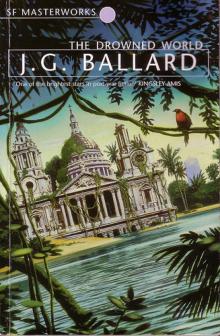 The Drowned World
The Drowned World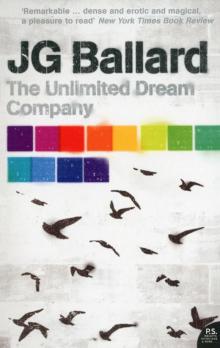 The Unlimited Dream Company
The Unlimited Dream Company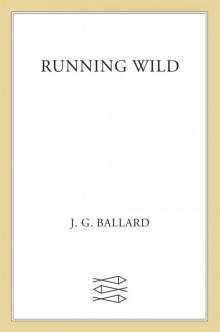 Running Wild
Running Wild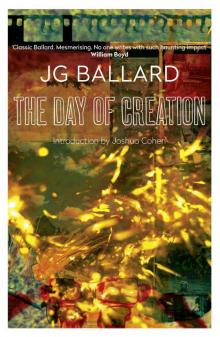 The Day of Creation
The Day of Creation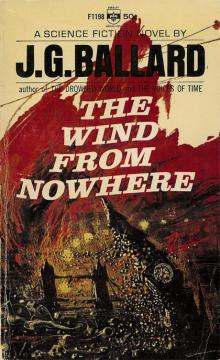 The Wind From Nowhere
The Wind From Nowhere The Complete Short Stories, Volume 2
The Complete Short Stories, Volume 2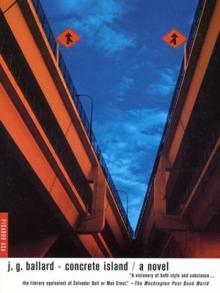 Concrete Island
Concrete Island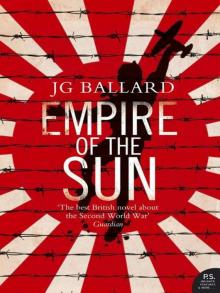 Empire of the Sun
Empire of the Sun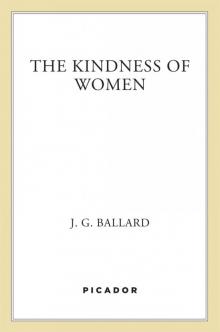 The Kindness of Women
The Kindness of Women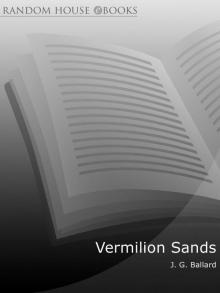 Vermilion Sands
Vermilion Sands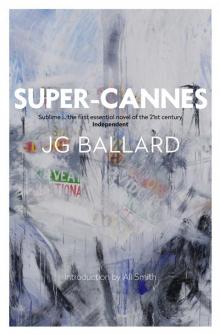 Super-Cannes
Super-Cannes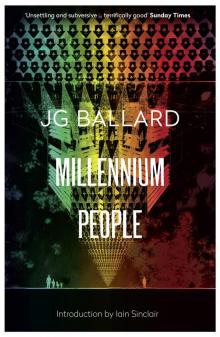 Millennium People
Millennium People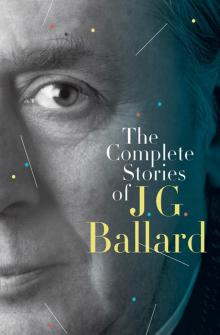 The Complete Stories of J. G. Ballard
The Complete Stories of J. G. Ballard Crash
Crash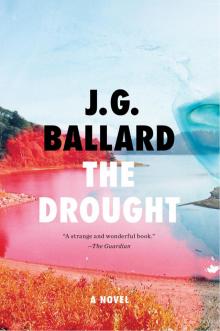 The Drought
The Drought The Atrocity Exhibition
The Atrocity Exhibition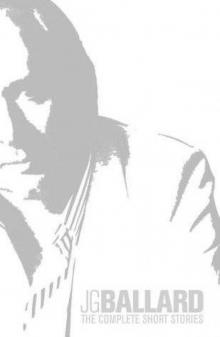 The Complete Short Stories: Volume 1
The Complete Short Stories: Volume 1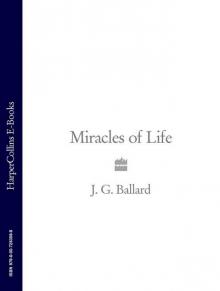 Miracles of Life: Shanghai to Shepperton: An Autobiography
Miracles of Life: Shanghai to Shepperton: An Autobiography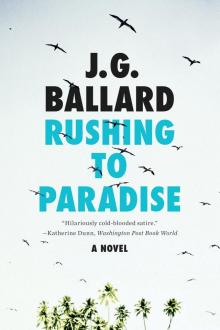 Rushing to Paradise
Rushing to Paradise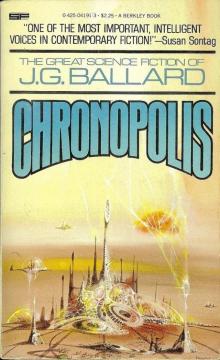 Chronopolis
Chronopolis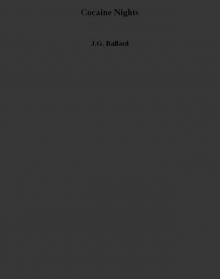 Cocaine Nights
Cocaine Nights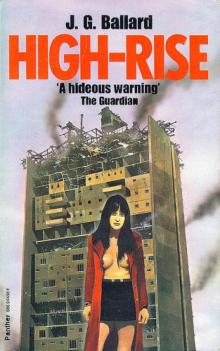 High Rise (1987)
High Rise (1987) The Complete Short Stories
The Complete Short Stories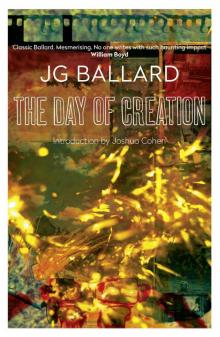 The Day of Creation (Harper Perennial Modern Classics)
The Day of Creation (Harper Perennial Modern Classics)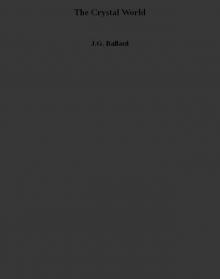 The Crystal World
The Crystal World